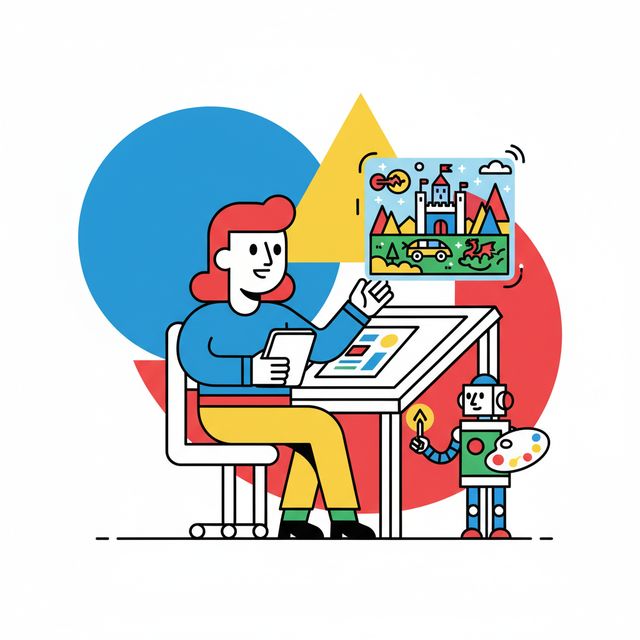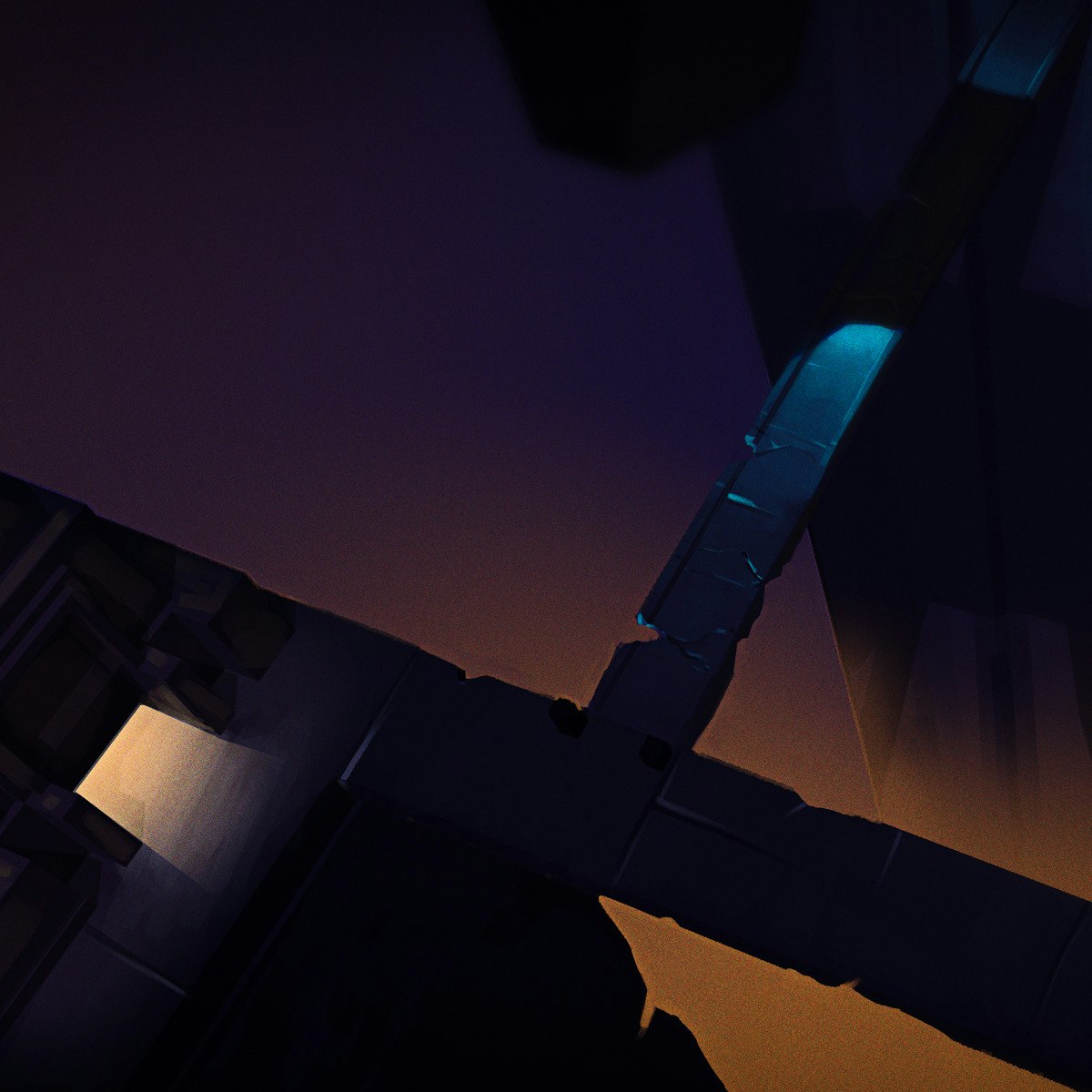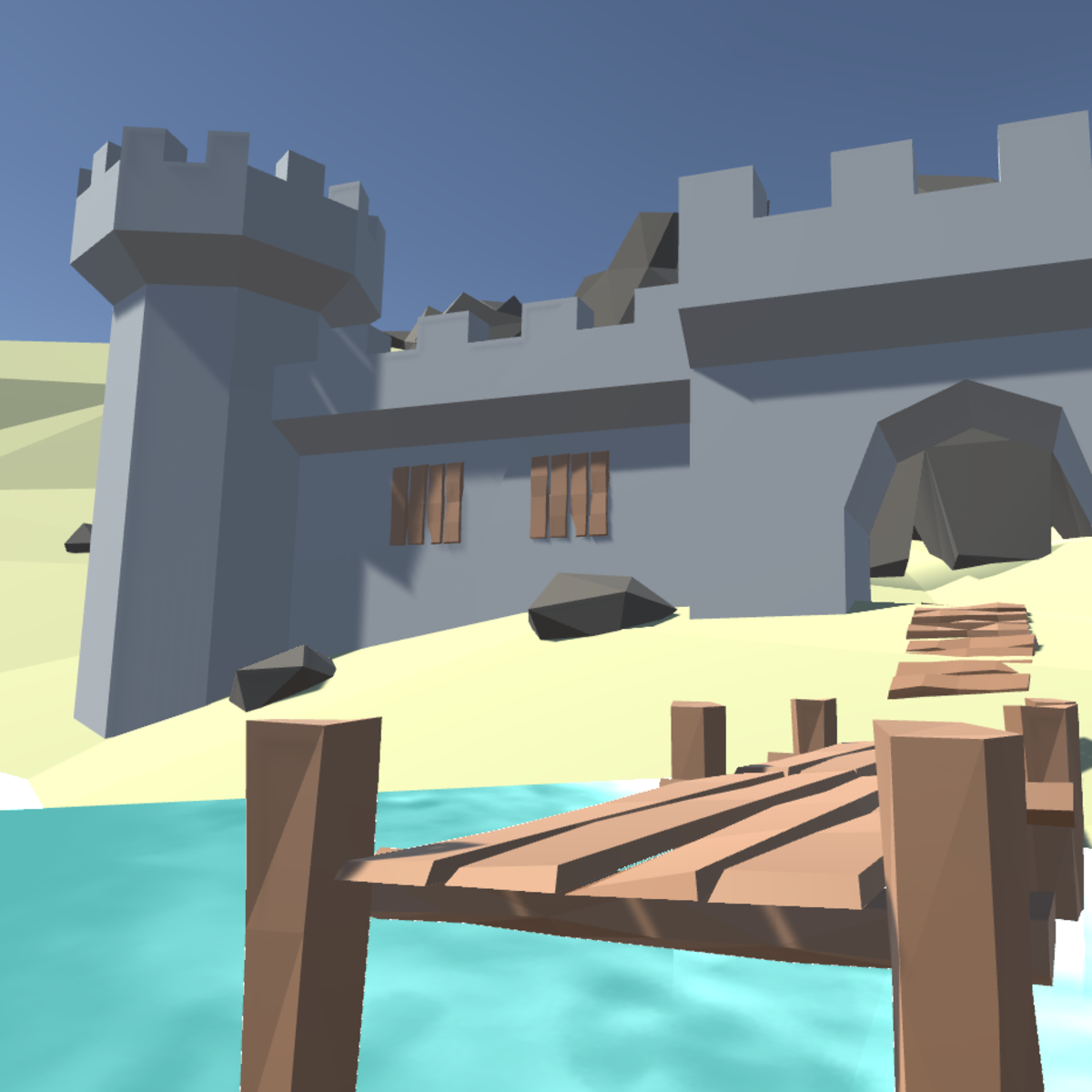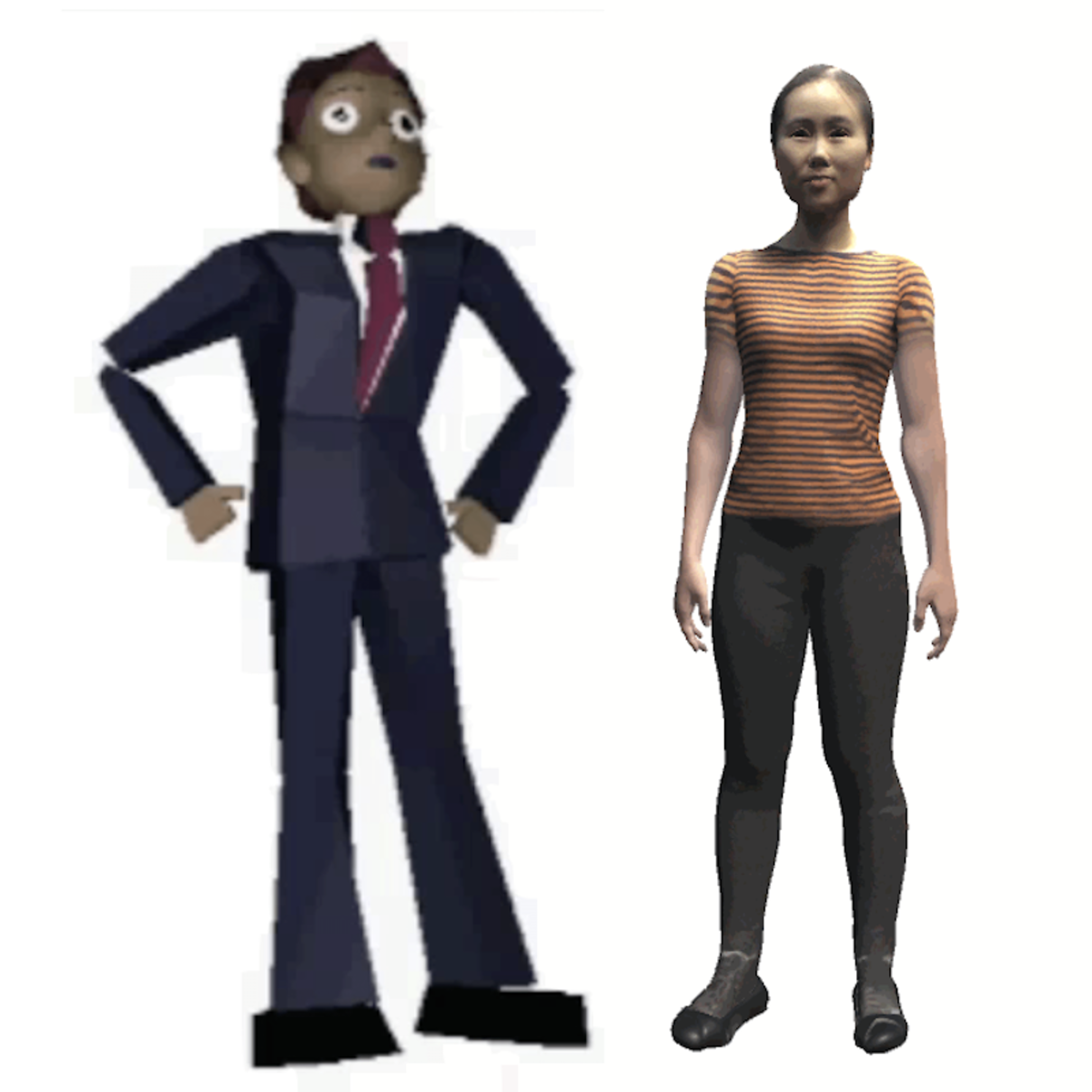Concept Artist
Concept Artist: Visualizing Worlds Yet to Be Seen
A Concept Artist serves as a visual architect, translating ideas, narratives, and abstract concepts into tangible images. They are foundational members of creative teams, primarily within the entertainment industries, tasked with establishing the visual direction for projects like video games, films, animations, and even theme parks or product designs. Their work provides the initial visual blueprint, guiding the look and feel of characters, environments, props, and creatures before they are fully realized in 3D models or live-action sets.
Imagine being the first person to draw a character that millions will come to know, or sketching the landscape of a fantastical world that players will explore for hours. Concept artists blend artistic skill with problem-solving, iterating on designs to find the perfect visual representation of an idea. This role offers the excitement of bringing imagination to life and collaborating with diverse teams to build immersive experiences.
Key Responsibilities of a Concept Artist
The day-to-day work of a Concept Artist involves much more than just drawing. It's about visual communication, problem-solving, and collaboration within a larger production pipeline. Understanding these core responsibilities helps clarify whether this creative path aligns with your working style and aspirations.
Translating Ideas into Visuals
At its heart, concept art involves taking written or verbal descriptions—often found in scripts, design documents, or creative briefs—and transforming them into compelling visuals. This requires not only artistic talent but also strong interpretive skills to capture the intended mood, style, and function of the subject matter. An artist might receive a brief for a "weather-beaten space outpost on a desert planet" and be expected to produce several variations exploring different architectural styles, levels of decay, and atmospheric conditions.
This process often involves significant research, gathering references for historical periods, architectural styles, anatomical structures, or natural landscapes to ensure authenticity and believability, even within fantastical settings. The goal is to provide clear, inspiring visual information that guides subsequent production stages.
Collaboration and Iteration
Concept artists rarely work in isolation. They collaborate closely with art directors, game designers, writers, 3D modelers, and other stakeholders. This interaction involves presenting work, receiving constructive criticism, and iterating on designs based on feedback. Flexibility and effective communication are crucial, as designs may evolve significantly throughout pre-production.
The iterative nature of the role means artists must be comfortable exploring multiple options and refining concepts. Feedback might range from minor tweaks to color palettes to complete overhauls of a character's design. Embracing this process is essential for aligning the artwork with the project's overall vision and technical requirements.
These books offer valuable insights into the mindset and techniques involved in visual development and design iteration.
Areas of Specialization
While some concept artists are generalists, many specialize in specific areas. Common specializations include character design (developing the appearance and personality of heroes, villains, and creatures), environment design (creating landscapes, architecture, and mood boards for settings), and prop design (focusing on weapons, vehicles, gadgets, and other objects).
Specializing allows artists to hone deep expertise in a particular niche, which can be valuable in larger studios or complex projects. However, versatility across different areas is also highly prized, especially in smaller teams or freelance settings. Understanding these specializations can help aspiring artists focus their portfolio development.
These courses provide focused training on key concept art specializations.
Formal Education Pathways
While a formal degree is not strictly mandatory to become a Concept Artist, structured education can provide essential foundational skills, industry connections, and a dedicated environment for portfolio development. Various educational routes can lead to this career, each with its own strengths.
Relevant Degrees and Programs
Many successful concept artists hold degrees in fields like Fine Arts (BFA), Illustration, Animation, Game Design, or Digital Media. These programs typically offer rigorous training in fundamental art principles, such as drawing, painting, anatomy, perspective, color theory, and composition. They also often incorporate digital tools and industry-specific workflows.
Look for programs that emphasize visual storytelling, design thinking, and portfolio creation. Courses specifically focused on concept art, character design, or environment painting are particularly beneficial. University programs often provide a broad academic foundation, while specialized art schools may offer more focused, industry-oriented training.
Foundational skills are paramount, regardless of the specific degree. Mastering anatomy and perspective is crucial for creating believable characters and environments.
Portfolio Development
Regardless of the educational path chosen, a strong portfolio is the single most important asset for landing a job as a concept artist. Educational programs often integrate portfolio development into their curriculum, guiding students on creating professional-quality pieces tailored to industry expectations.
A successful portfolio should showcase not only technical skill but also creativity, problem-solving abilities, and an understanding of design principles. It should ideally demonstrate proficiency in areas relevant to the desired specialization (character, environment, etc.) and reflect the specific styles prevalent in the target industry (e.g., realistic for film, stylized for certain games).
Building a portfolio takes time and dedication. It involves creating personal projects, participating in art challenges, and constantly seeking feedback to refine one's work. Quality over quantity is key; a few outstanding pieces are more effective than many mediocre ones.
These books provide excellent guidance on drawing fundamentals essential for any artist's portfolio.
Internships and Networking
Formal education can also facilitate valuable internship opportunities within studios. Internships provide real-world experience, exposure to professional pipelines, and chances to network with industry professionals. Many schools have established relationships with studios, helping students secure these placements.
Networking, whether through internships, school events, industry conferences, or online communities, is vital. Building connections can lead to mentorship, feedback, and potential job opportunities down the line. Educational institutions often provide structured ways to start building this professional network.
Online Learning and Skill Development
The accessibility of online learning has opened up powerful avenues for aspiring concept artists, whether they are supplementing formal education, pivoting from another career, or entirely self-taught. Online platforms offer specialized training, flexibility, and access to industry expertise often unavailable through traditional routes.
Mastering Digital Tools and Workflows
Proficiency in industry-standard digital painting software is non-negotiable for most concept art roles. Online courses provide focused, practical training on tools like Adobe Photoshop, Procreate, Clip Studio Paint, and others. These courses often cover not just the software's features but also efficient workflows used by professionals, including layer management, custom brush creation, and non-destructive editing techniques.
Beyond basic software use, online learning can delve into specific techniques like photobashing (combining photos to create realistic concepts quickly), 3D integration (using simple 3D models as a base for paintings), and advanced lighting and color techniques. OpenCourser features a vast catalog of courses, allowing learners to browse design categories or search for specific skills.
These courses offer comprehensive training in popular digital painting software and techniques.
Building a Portfolio Remotely
Online courses and communities provide excellent resources for building a competitive portfolio from anywhere in the world. Many courses include project assignments designed to produce portfolio-worthy pieces. Online art challenges, forums, and mentorship programs offer opportunities for feedback and improvement outside a traditional classroom setting.
Learners can use online platforms to showcase their work, connect with peers and professionals, and receive critiques. Platforms like ArtStation are industry standards for hosting portfolios. Effectively presenting work online, including clear descriptions of the creative process and goals for each piece, is a skill in itself that online resources can help develop.
OpenCourser's Learner's Guide offers tips on structuring self-learning paths and staying motivated, which is crucial for remote portfolio development. Utilizing features like saving courses to a list helps organize learning effectively.
These courses focus on digital painting fundamentals and creating portfolio-ready work.
Supplementing and Specializing
For those already in formal education or working in related fields, online courses offer a way to supplement existing knowledge or specialize in niche areas. A student in a general Fine Arts program might take an online course specifically on environment painting for games, or a graphic designer might learn character design techniques online to pivot towards concept art.
The flexibility of online learning allows individuals to acquire specific, in-demand skills at their own pace. This is particularly valuable in a rapidly evolving field where new tools and techniques constantly emerge. Online courses can bridge gaps in traditional curricula or provide advanced training beyond what's offered locally.
Exploring courses on specific styles or advanced techniques can significantly enhance a portfolio and career prospects.
Concept Artist Career Progression
The path of a Concept Artist often involves progressing through various levels of responsibility and influence within a studio or as an independent freelancer. Understanding this trajectory helps set realistic career goals and navigate potential transitions.
Entry-Level and Early Career
Most concept artists start in junior roles, sometimes titled Junior Concept Artist, Production Assistant, or similar. In these positions, individuals typically work under the guidance of senior artists or art directors, focusing on smaller tasks, generating variations on existing designs, or cleaning up sketches.
The early years are crucial for honing technical skills, understanding studio pipelines, building professional relationships, and further developing one's artistic voice. Demonstrating reliability, responsiveness to feedback, and a strong work ethic are key to advancing.
Portfolio quality remains paramount for securing these initial roles. Entry-level portfolios should showcase strong foundational skills (drawing, perspective, anatomy, color) and a clear understanding of concept art principles, even if the pieces are based on personal projects or coursework.
Mid-Career Advancement
With experience, concept artists can progress to mid-level and senior roles. Senior Concept Artists typically handle more complex assignments, have greater creative input, and may mentor junior artists. They possess a deep understanding of the project's visual style and can consistently deliver high-quality work that meets creative and technical requirements.
From a senior artist position, common advancement paths include becoming a Lead Concept Artist or an Art Director. A Lead Artist often oversees a small team focused on a specific area (e.g., Lead Character Artist) and ensures consistency within that domain. An Art Director holds a broader vision for the entire project's visual style, guiding the art team and making key aesthetic decisions.
These roles require not only artistic excellence but also strong leadership, communication, and organizational skills. Some artists may choose to remain specialized senior contributors rather than moving into management.
Freelance vs. Studio Employment
Concept artists can choose between working in-house at a studio (game developer, film studio, animation house) or operating as freelancers. Studio employment offers stability, benefits, and the experience of working closely within a team on large-scale projects. However, it may involve less creative freedom on individual assignments and adherence to established pipelines.
Freelancing provides greater autonomy, the flexibility to choose projects, and potentially higher earning potential per project. However, it requires strong self-discipline, business acumen (marketing, contracts, invoicing), and the ability to manage fluctuating workloads and income. Many artists transition between freelance and studio work throughout their careers.
Salary expectations vary significantly based on experience level, location, industry (games vs. film vs. advertising), and employment model (freelance vs. studio). Resources like the U.S. Bureau of Labor Statistics (BLS) provide general data for multimedia artists and animators, though specific concept art salaries can differ. Industry surveys and recruitment firm reports sometimes offer more targeted benchmarks.
Concept Art in Industry Applications
Concept art is a vital component across numerous creative industries, playing a critical role in shaping the visual identity and user experience of various products and entertainment media. Its applications extend beyond the commonly known fields of film and games.
Video Game Development
In video games, concept art establishes the visual foundation for everything players see and interact with. Artists create designs for characters, creatures, environments, vehicles, weapons, and user interfaces. This artwork guides 3D modelers, animators, and level designers, ensuring a cohesive and immersive game world.
The style of concept art varies widely depending on the game's genre and target audience, ranging from hyper-realistic to highly stylized cartoon visuals. The process is highly iterative, adapting to gameplay requirements and technical constraints.
Film and Animation Pre-Production
Concept art is indispensable in film and animation pre-production. It helps directors and production designers visualize scenes, characters, costumes, and sets before costly filming or animation begins. Storyboards, which are sequential concept sketches, map out camera angles and action sequences.
Environment paintings establish the mood and atmosphere of locations, while character designs define the look of actors or animated figures. Prop designs ensure consistency for key objects. This visual development phase saves time and resources by resolving design challenges early.
Advertising and Product Visualization
Concept artists also contribute to advertising campaigns and product design. In advertising, they might create visuals for pitches, storyboards for commercials, or illustrations for print ads. Their work helps communicate ideas effectively and persuasively.
For product visualization, concept artists sketch initial ideas for new products, ranging from consumer electronics to automobiles. These early visuals help designers and engineers refine forms and features before physical prototypes are built. Architectural visualization also employs concept artists to create compelling renderings of proposed buildings and spaces.
Emerging Technologies: VR, AR, and the Metaverse
As technologies like Virtual Reality (VR), Augmented Reality (AR), and concepts like the Metaverse evolve, the demand for concept artists in these areas is growing. Designing immersive experiences requires strong spatial visualization skills and an understanding of how users interact within 3D environments.
Concept artists help define the aesthetics of virtual worlds, design avatars and digital assets, and visualize user interfaces for these new platforms. This represents an exciting frontier for the field, blending traditional art skills with an understanding of interactive digital spaces.
Tools and Technical Competencies
Mastery of specific tools and techniques is fundamental for a career as a Concept Artist. While artistic foundations remain crucial, proficiency in digital software and workflows is typically expected in professional settings. The toolkit continues to evolve with technological advancements.
Digital Painting Software
The cornerstone of most concept artists' toolkits is digital painting software. Adobe Photoshop has long been the industry standard due to its powerful brush engine, layering capabilities, and image manipulation features. However, other programs are widely used and gaining popularity.
Procreate, an iPad application, is favored for its intuitive interface and portability, especially for sketching and initial ideation. Clip Studio Paint (formerly Manga Studio) is popular for line art and comic/manga styles, offering robust vector tools and perspective guides. Krita is a powerful open-source alternative gaining traction. Proficiency in at least one major painting software is essential.
These courses cover essential digital painting software used by concept artists.
3D Integration and Workflows
Increasingly, concept artists incorporate 3D tools into their workflow. Software like Blender (free and open-source), ZBrush, Maya, or SketchUp allows artists to quickly create base models ("blockouts") for complex objects or environments. These 3D bases help establish correct perspective, scale, and lighting before painting over them in 2D software.
This integration speeds up the creation process, particularly for hard-surface designs (vehicles, architecture, props) and complex scenes. Familiarity with basic 3D modeling, UV mapping, and rendering concepts is becoming a valuable asset for concept artists. Some artists even specialize in creating detailed 3D concept sculpts.
These courses and books delve into 3D software relevant to concept artists.
Real-Time Engines and AI Tools
Knowledge of real-time game engines like Unreal Engine or Unity is becoming beneficial, especially for environment concept artists. These engines allow artists to visualize designs within the actual game environment, test lighting scenarios, and understand technical limitations early on.
Artificial Intelligence (AI) tools for image generation (e.g., Midjourney, Stable Diffusion, Adobe Firefly) are also entering the conversation. While controversial, these tools can potentially assist with ideation, texture generation, or creating rapid variations. Understanding how to ethically and effectively leverage AI as part of the creative process is an emerging skill, though foundational art skills remain paramount.
Exploring these newer technologies can enhance an artist's versatility.
Challenges and Industry Realities
Pursuing a career as a Concept Artist is rewarding but also comes with significant challenges and industry-specific pressures. Awareness of these realities is crucial for setting expectations and navigating the field successfully.
Market Competitiveness
The allure of working in creative industries like games and film means the job market for concept artists is highly competitive. Many talented artists vie for a limited number of positions, particularly at well-known studios. Standing out requires not only exceptional artistic skill but also a professional attitude, strong communication, and a portfolio tailored to specific industry needs.
Breaking in often requires persistence, continuous skill development, and effective networking. It's important to be prepared for potential rejection and to view the job search as an ongoing process, especially early in one's career.
Even with talent, landing that first role can be difficult. Remember that every rejection is a data point, not a final judgment. Analyze feedback, refine your portfolio, keep learning, and stay persistent. Your passion and dedication are your greatest assets in a competitive field.
Impact of Artificial Intelligence
The rise of AI image generation tools presents both opportunities and challenges. There are concerns that AI could automate certain aspects of concept art, potentially impacting entry-level roles focused on rapid iteration or asset generation. Artists may need to adapt by focusing on higher-level creativity, unique styles, problem-solving, and integrating AI tools into their workflows strategically.
The ethical implications surrounding AI art, including copyright issues and the use of datasets, are still evolving. Staying informed about these developments and focusing on core artistic principles—design thinking, storytelling, emotional resonance—that AI currently struggles to replicate remains important. Some perspectives on this can be found in discussions from industry leaders and consulting firms like McKinsey & Company on the state of AI.
This evolving landscape can feel daunting, especially for newcomers. Remember that technology has always changed artistic workflows. Adaptability and a commitment to lifelong learning are key. Focus on what makes human creativity unique: intent, emotion, and storytelling.
Contracts, IP, and Health Considerations
Understanding contracts and Intellectual Property (IP) rights is crucial, especially for freelancers. Contracts define project scope, payment terms, and, importantly, who owns the rights to the created artwork. Artists must carefully review agreements to understand their rights and obligations.
The demanding nature of the work can also pose health challenges. Long hours spent drawing digitally can lead to Repetitive Strain Injuries (RSI) like carpal tunnel syndrome. "Crunch culture"—periods of intense overtime common in game and film production—can contribute to burnout and stress. Maintaining good ergonomics, taking regular breaks, and advocating for healthy work-life balance are essential for long-term sustainability in the field.
Navigating contracts and protecting your health requires diligence. Don't hesitate to seek legal advice for complex contracts or medical advice for physical strain. Your well-being is paramount for a long and fulfilling creative career.
Future of Concept Art Careers
The field of concept art is dynamic, influenced by technological advancements, shifting industry demands, and evolving production methods. Anticipating future trends can help artists position themselves for continued success and relevance.
Generative AI and Collaboration
Generative AI is poised to become a significant factor in concept art workflows. Rather than replacing artists entirely, the near-term trend suggests AI will increasingly function as a collaborative tool. Artists might use AI for rapid ideation, exploring variations, generating textures, or automating repetitive tasks, freeing them to focus on higher-level creative decisions, refinement, and unique artistic expression.
Success in the future may depend on an artist's ability to effectively prompt, guide, and curate AI-generated content, integrating it seamlessly into their established creative process. Skills in critical evaluation, art direction, and maintaining a distinct artistic voice will become even more valuable.
Staying updated on AI tools and ethical considerations is crucial.
Globalization and Studio Models
The trend of global outsourcing in creative industries may continue, potentially impacting local job markets. However, the need for close collaboration, rapid iteration, and culturally specific design often favors localized studios or hybrid models where core teams work closely together, possibly supplemented by remote freelancers.
The rise of remote work capabilities also opens opportunities for artists to collaborate with studios worldwide, regardless of their physical location. This increases both competition and potential project variety. Adaptability to different team structures and communication styles will be beneficial.
Cross-Disciplinary Skill Demands
As production pipelines become more integrated, concept artists with cross-disciplinary skills may have an advantage. Understanding 3D modeling basics, game engine functionalities (like Unreal or Unity), animation principles, or even user experience (UX) design can enhance an artist's value and ability to collaborate effectively with other departments.
The lines between roles like concept artist, industrial designer, and technical artist may continue to blur on some projects. A willingness to learn adjacent skills and understand the broader production context will be increasingly important.
Sustainability in Production
While less direct than in manufacturing, discussions around sustainability are entering creative digital pipelines. This might involve optimizing workflows to reduce computational load (energy consumption) or considering the environmental themes within the content being created. While still an emerging area, awareness of broader industry concerns, including ethical production practices, can be a subtle differentiator.
The future demands adaptability. Embracing new tools like AI, understanding adjacent disciplines, and staying attuned to industry shifts will be key for thriving as a concept artist in the years to come.
Frequently Asked Questions
Navigating the path to becoming a Concept Artist often raises common questions. Here are answers to some frequently asked queries to help clarify aspects of this creative career.
Is a formal art degree required to become a concept artist?
No, a formal degree is not an absolute requirement. The most critical factor for getting hired is a strong, industry-relevant portfolio showcasing excellent artistic foundations, creativity, and technical skill. Many successful concept artists are self-taught or have learned through online courses and workshops.
However, formal education (like a BFA in Illustration, Game Art, or Animation) can provide structured learning, mentorship, access to resources, networking opportunities, and dedicated time for portfolio development, which can be highly beneficial. Ultimately, demonstrable skill and a compelling portfolio outweigh specific academic credentials.
Consider exploring foundational drawing and painting courses online to build essential skills, regardless of your educational background.
How competitive is the job market for concept artists?
The job market is highly competitive, particularly for entry-level positions and roles at major film or game studios. Many talented individuals aspire to these roles. Success requires not only artistic talent but also professionalism, adaptability, strong communication skills, and a portfolio tailored to the specific needs of the industry or studio you're targeting.
Persistence, continuous learning, networking, and strategically developing your portfolio are essential for navigating this competitive landscape. Specializing in a high-demand niche (like technical concept art or specific visual styles) can sometimes provide an edge.
Don't be discouraged by the competition. Focus on building a unique voice and strong foundational skills. OpenCourser offers resources like the OpenCourser Notes blog for career advice and industry insights.
Can traditional artists transition into digital concept art roles?
Absolutely. Traditional art skills—drawing, painting, composition, anatomy, perspective, color theory—form the bedrock of concept art. Artists with strong traditional foundations often have a significant advantage when learning digital tools.
The main challenge is mastering the digital software (like Photoshop, Procreate, ZBrush) and adapting traditional techniques to the digital medium. This involves learning about layers, brushes, blending modes, and digital workflows. Online courses are an excellent way for traditional artists to acquire these specific digital skills efficiently.
These courses bridge traditional skills with digital tools.
What distinguishes junior, mid-level, and senior concept artist roles?
Junior artists typically handle less complex tasks, execute designs based on established directions, create variations, and require more direct supervision. Mid-level artists demonstrate greater autonomy, tackle more challenging assignments, contribute to design solutions, and have a solid grasp of the production pipeline.
Senior artists possess deep expertise, consistently deliver high-quality work meeting complex requirements, often contribute significantly to establishing the visual style, may mentor junior artists, and require minimal supervision. They exhibit strong problem-solving skills and a thorough understanding of the project's goals.
Progression involves demonstrating increasing skill, reliability, problem-solving ability, and understanding of the broader project context.
How is AI expected to impact entry-level opportunities?
AI image generation tools may automate some tasks previously handled by junior artists, such as creating rapid variations or generating basic assets. This could potentially make entry-level positions more competitive, requiring newcomers to demonstrate stronger foundational skills, creativity, and adaptability from the outset.
However, AI also presents opportunities. Entry-level artists who learn to effectively use AI as a tool within their workflow—for ideation, research, or texture generation—might find new ways to add value. The focus may shift towards skills AI cannot easily replicate: strong design thinking, unique style, storytelling, and critical evaluation.
Understanding AI tools can be beneficial.
What are typical career durations and exit opportunities?
Careers in concept art can be long and fulfilling, with artists working well into traditional retirement ages if they choose. Many progress into Art Director or Creative Director roles within studios. Others leverage their skills to move into related fields like illustration, teaching, UI/UX design, or even founding their own studios.
Some artists transition out due to factors like burnout, desire for a different work-life balance, or interest in other creative pursuits. The skills developed as a concept artist—visual communication, problem-solving, technical proficiency—are transferable to various other creative and design-oriented careers.
Related Careers and Fields
The skills developed as a Concept Artist overlap with several other creative roles. Exploring these related careers can provide alternative pathways or areas for future specialization for those interested in visual arts and design within entertainment and beyond.
Illustrator
While concept art focuses on visual development and problem-solving during pre-production, illustration typically involves creating final, polished images for specific purposes like book covers, editorial content, marketing materials, or game loading screens. Illustrators often have a distinct personal style and focus on delivering a finished piece, whereas concept artists prioritize clear communication of ideas through iterative designs.
This course offers insights into the illustration field.
Environment Artist
Environment Artists specialize in creating the 3D environments seen in games or films, based often on concept art. They model, texture, and light digital scenes, translating 2D concepts into interactive or viewable 3D spaces. This role requires strong 3D modeling and texturing skills, proficiency in game engines or rendering software, and an understanding of level design principles.
These courses focus on creating environments, often using 3D tools.
Character Modeler / Artist
Similar to Environment Artists, Character Modelers (or Character Artists) specialize in creating the 3D versions of characters based on concept designs. They sculpt or model characters in software like ZBrush or Maya, create textures, and prepare models for animation (rigging). This requires deep knowledge of anatomy, topology for animation, texturing, and character design principles.
These courses and books are relevant to character creation and modeling.
Technical Artist
Technical Artists bridge the gap between art and programming. They develop tools and workflows to optimize the art pipeline, solve technical challenges related to art assets, create complex shaders, and ensure art assets perform efficiently in game engines or rendering software. This role requires a blend of artistic understanding and technical programming/scripting skills.
Helpful Resources
Continuing your journey into concept art involves ongoing learning and engagement with the community. Here are some types of resources that can be valuable:
- Online Communities and Forums: Websites like ArtStation host vast portfolios and connect artists. Forums dedicated to digital art or specific software (like Polycount for game art) offer spaces for feedback, discussion, and learning.
- Industry Events: Conferences such as the Game Developers Conference (GDC), SIGGRAPH, LightBox Expo, or CTN Animation Expo offer talks, workshops, portfolio reviews, and networking opportunities with industry professionals. Many talks are later available online.
- Professional Organizations: While concept art doesn't have a single dedicated professional body like some fields, organizations related to animation (e.g., ASIFA), games (e.g., IGDA), or illustration (e.g., Society of Illustrators) can offer relevant resources and networking.
- Books and Publications: Beyond tutorials, books on art fundamentals ("Color and Light" by James Gurney, "How to Draw" by Scott Robertson), artist monographs ("The Art of..." books for films/games), and industry insights offer deep knowledge.
- Online Learning Platforms: Continuously explore platforms like OpenCourser to find new courses on emerging tools, advanced techniques, or specialized subjects taught by industry veterans. Utilize features like saving courses to manage your learning list.
Embarking on a career as a Concept Artist is a challenging yet immensely rewarding endeavor for those passionate about visual storytelling and world-building. It requires a blend of innate artistic talent, dedicated practice, technical proficiency, and continuous learning. By understanding the responsibilities, pathways, challenges, and tools of the trade, aspiring artists can navigate this exciting field with clarity and purpose, transforming imagination into the visual foundations of unforgettable experiences.













































